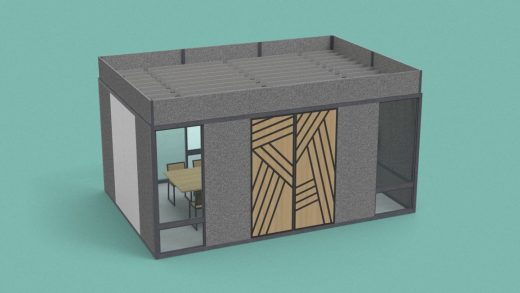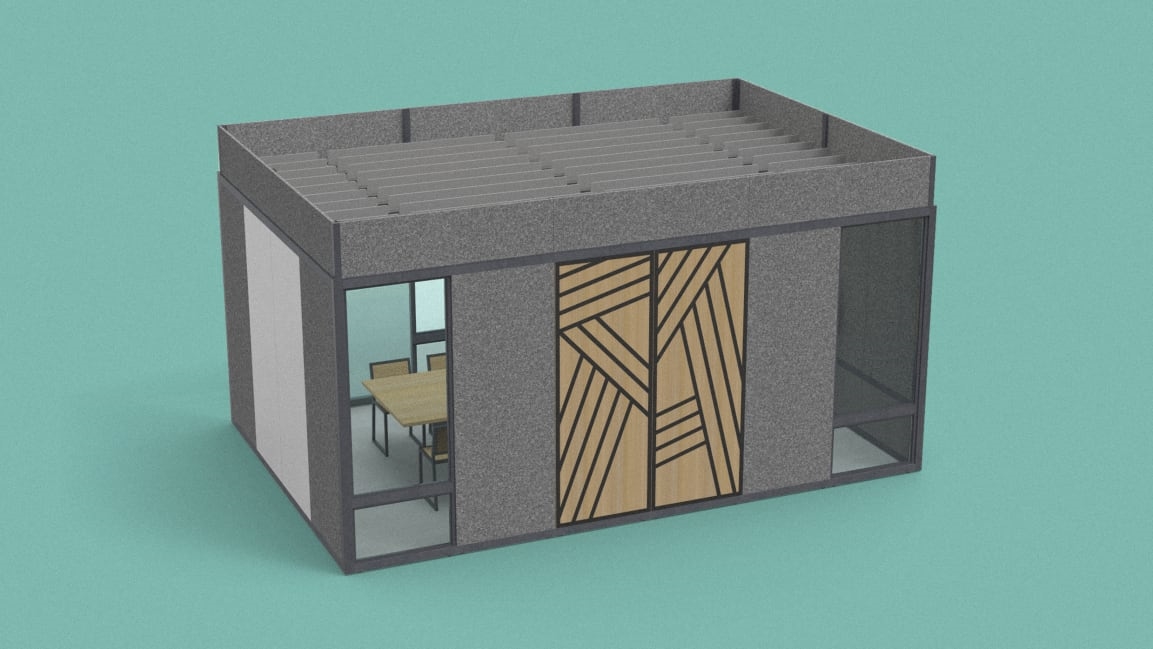Knotel launches a furniture subscription service for offices
Knotel, an office space provider, is the latest company to embrace the subscription economy. Today, Knotel is announcing its own modular furniture line called Geometry that will be available exclusively as a subscription rental, initially for tenants of Knotel’s offices, and eventually for anyone. The announcement comes as the traditional practice of companies finding office space and staying in it for 30 years is being upended in favor of quickly built, impermanent spaces–a trend that could lend itself to a more homogenous look for offices.
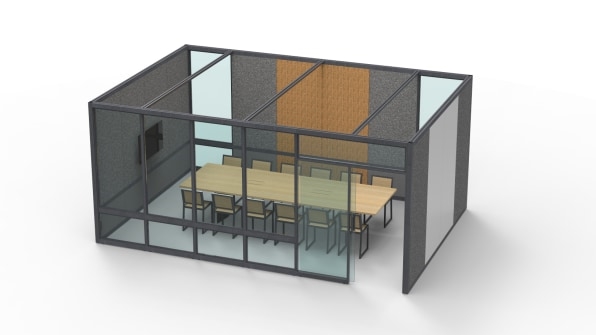
[Image: Knotel]
“Furniture” is sort of a misnomer for what Geometry is. Knotel is an office design and operation company that leases out office space for short- and long-term use and sets it up quickly–in as little as an hour, according to its CEO–using collapsible meeting rooms, portable phone booths, and double-L couches with high walls that create conversation nooks. The company’s specialty is reducing the cost and time suck of construction with pre-fabricated modular architectural objects. Previously this “furniture,” which the company designs in-house, would be sold to clients as part of a package deal. Now, clients can rent the furniture for a monthly fee, giving them the freedom to change up their offices when trends go out of style or they have new needs.
“We’re trying to change construction and turn it into assembly,” says Knotel CEO Amol Sarva. Geometry is the next logical iteration on that idea, because it means companies won’t have to throw out furniture when they’re done with it; they’ll simply swap it out for something else. Just how many years of use Knotel will get out of the furniture is unclear, though Sarva says he has designed them to be sturdy.
Offices have long rented furniture. Ask Cort, which started renting out furniture in 1972. But an office furniture subscription is new as more companies and startups are embracing rentals as part of the subscription economy. The new credo asks: Why own your clothes, your couch, and your office furniture, when you can rent? Now, you can subscribe to furniture monthly through Ikea, Mobley, and CasaOne for your home or office.
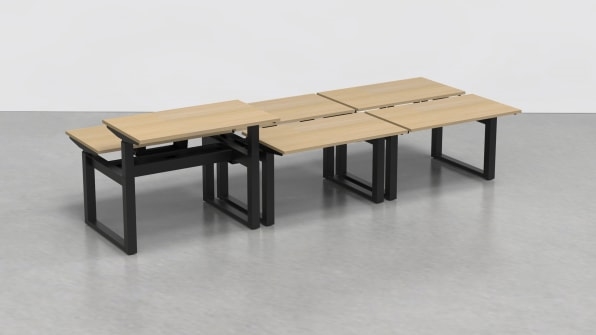
[Image: Knotel]
But companies have new reasons to embrace such a model. Vacancy rates for offices across the United States are relatively stable, but in sought-after markets like San Francisco, New York, and Seattle and emerging tech hubs like Nashville, Miami, and Austin, the competition for space is fierce. Tech and finance companies are driving much of the race for space, according to an April report from real estate services firm JLL. It can take a while for companies to lock down a lease. “The traditional real estate deal cycle can be nine to 12 months and there’s greater need for speed and agility today,” says Scott Homa, director of Office Research at JLL.
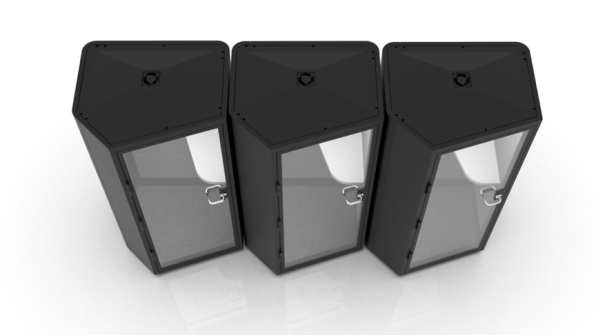
When companies do finally get the green light to move in, they want to set up fast. “You don’t have the luxury of time to wait out that protracted period of site selection, lease negotiation, permitting, design, build-out, and furnishing of new spaces,” says Homa, and why would a company want to delay when a new crop of companies are competing to make office design and construction more efficient?
Companies may also be keen to remove furniture from their list of capital expenditures and make it part of their operating budget instead. After all, furniture is a depreciating asset.
A problem Geometry may run into is: While the pieces are modular and relatively minimal in design, they are uniform. With Geometry, offices may start to all look the same at a time when there is fierce competition for talent and companies use their offices as marketing tools, especially among tech workers. Sarva insists the subscription service will not lead to more homogeneity. “The idea of this modular reusable tool kit is not to propagate sameness across the world, but to propagate flexibility,” says Sarva. In other words: If you want a cute chair, you are still free to go to Knoll.
(49)

